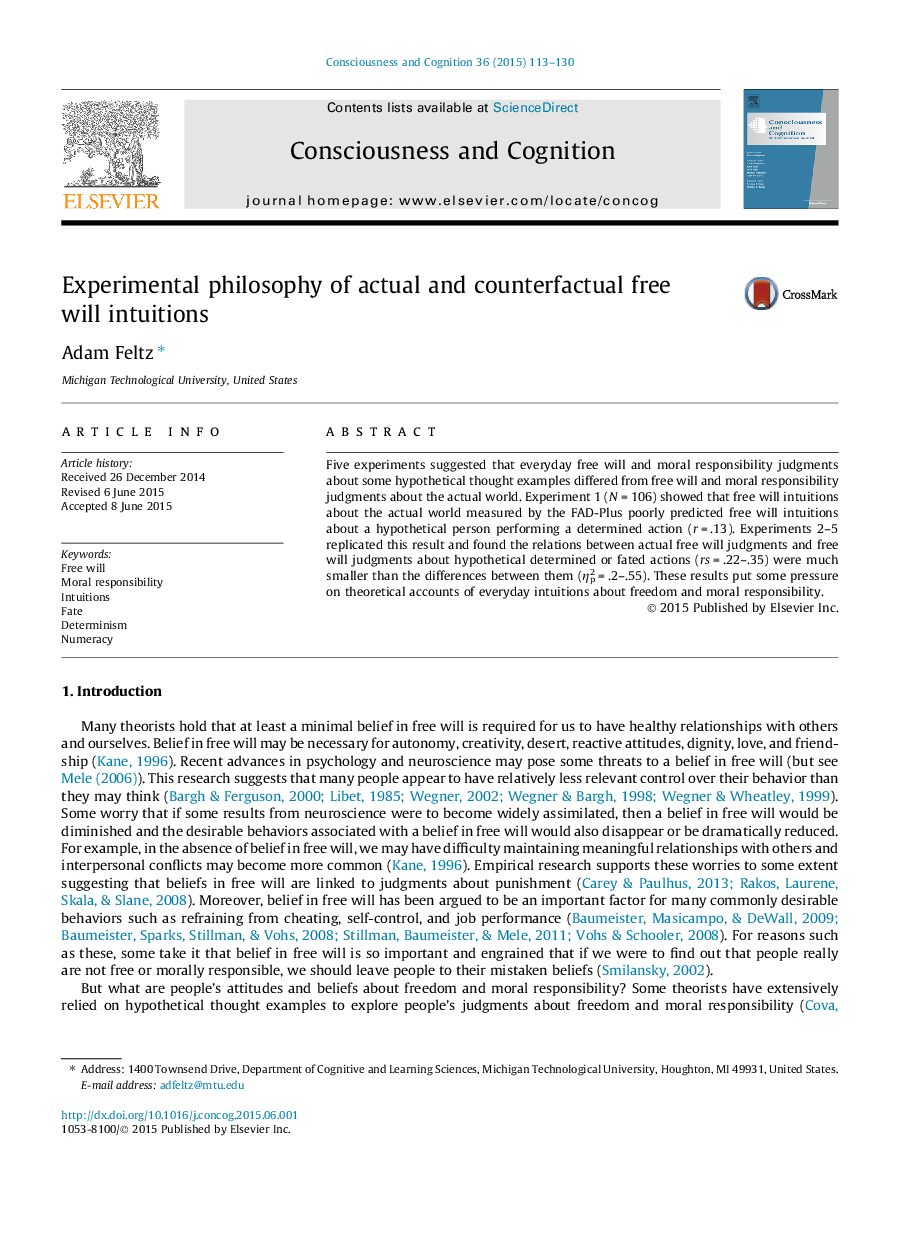| Article ID | Journal | Published Year | Pages | File Type |
|---|---|---|---|---|
| 7289041 | Consciousness and Cognition | 2015 | 18 Pages |
Abstract
Five experiments suggested that everyday free will and moral responsibility judgments about some hypothetical thought examples differed from free will and moral responsibility judgments about the actual world. Experiment 1 (N = 106) showed that free will intuitions about the actual world measured by the FAD-Plus poorly predicted free will intuitions about a hypothetical person performing a determined action (r = .13). Experiments 2-5 replicated this result and found the relations between actual free will judgments and free will judgments about hypothetical determined or fated actions (rs = .22-.35) were much smaller than the differences between them (ηp2 = .2-.55). These results put some pressure on theoretical accounts of everyday intuitions about freedom and moral responsibility.
Related Topics
Life Sciences
Neuroscience
Cognitive Neuroscience
Authors
Adam Feltz,
